ZONDERVAN
Zondervan 2019 Church and Nonprofit Tax and Financial Guide
Copyright 2019 by ECFA (Evangelical Council for Financial Accountability)
Requests for information should be addressed to:
Zondervan, 3900 Sparks Dr. SE, Grand Rapids, Michigan 49546
ePub Edition December 2018: ISBN 978-0-310-09268- 1
Publishers note: This guide is published in recognition of the need for clarification of tax and other laws for churches and nonprofit organizations. Every effort has been made to publish a timely, accurate, and authoritative guide. The publisher, author, and reviewers do not assume any legal responsibility for the accuracy of the text or any other contents.
Readers are cautioned that this book is sold with the understanding that the publisher is not rendering legal, accounting, or other professional service. Organizations with specific tax problems should seek the professional advice of a tax accountant or lawyer.
References to IRS forms and tax rates are derived from preliminary proofs of 2018 forms or 2017 forms. Some adaptation for changes may be necessary. These materials should be used solely as a guide in filling out 2018 tax and information returns. To obtain the final forms, schedules, and tables for filing returns and forms, contact the IRS or a public library.
The term nonprofit organization covers a broad range of entities such as churches, colleges, universities, health care providers, business leagues, veterans groups, political parties, country clubs, and united-giving campaigns. The most common type of nonprofit is the charitable organization.
The nonprofit organization concept is basically a state law creation, but tax-exempt organizations are based primarily on federal law. The Internal Revenue Code does not use the word nonprofit. The Code refers to nonprofits as exempt organizations. Certain state statutes use the term not-for-profit. A not-for-profit organization under state law may or may not be tax-exempt under federal law. In this book, the term nonprofit refers to nonprofit organizations that are exempt from federal income tax.
All Scripture quotations, unless otherwise indicated, are taken from The Holy Bible, New International Version, NIV. Copyright 1973, 1978, 1984, 2011 by Biblica, Inc. Used by permission of Zondervan. All rights reserved worldwide. www.Zondervan.com. The NIV and New International Version are trademarks registered in the United States Patent and Trademark Office by Biblica, Inc.
Any Internet addresses (websites, blogs, etc.) and telephone numbers in this book are offered as a resource. They are not intended in any way to be or imply an endorsement by Zondervan, nor does Zondervan vouch for the content of these sites and numbers for the life of this book.
All rights reserved. With the exception of the sample board resolutions, checklists, charts, and procedures, no part of this publication may be reproduced, stored in a retrieval system, or transmitted in any form or by any meanselectronic, mechanical, photocopy, recording, or any otherexcept for brief quotations in printed reviews, without the prior permission of the publisher.
18 19 20 21 22 23 24 25 / DHV / 20 19 18 17 16 15 14 13 12 11 10 9 8 7 6 5 4 3 2 1
Information about External Hyperlinks in this ebook
Please note that footnotes in this ebook may contain hyperlinks to external websites as part of bibliographic citations. These hyperlinks have not been activated by the publisher, who cannot verify the accuracy of these links beyond the date of publication.
Contents
A guide within a guide
Ministry policies that are distinct from personnel or accounting policies are needed and useful in a church or ministry. Below is a checklist to assess the types of documentation that may be helpful in a particular ministry.
 Conflict of interest policy ()
Conflict of interest policy ()
 Policy on suspected misconduct, dishonesty, fraud, and whistleblower protection ()
Policy on suspected misconduct, dishonesty, fraud, and whistleblower protection ()
 Document retention/destruction policy ()
Document retention/destruction policy ()
 Gift acceptance policy ()
Gift acceptance policy ()
 Accountable reimbursement plan ()
Accountable reimbursement plan ()
 Compensation approval policy
Compensation approval policy
This policy should address the overall compensation philosophy of the organization. It should include how compensation is determined and approved for the senior leader as well as his or her staff. The policy should also address who will review compensation and how often.
 Cell phone usage policy
Cell phone usage policy
This type of policy should discuss specific details related to the taxability of cell phone benefits for those devices/plans owned by the organization as well as those devices/plans owned by the employee. A cell phone usage policy should also address the expectations for cell phone usage while driving.
 Intellectual property policy
Intellectual property policy
Under the Copyright Act of 1976, any intellectual property created by an employee in performing his or her job is owned by the organization. Some ministries opt to treat this differently. If there are any works created such as music, drama, or books, it is important to work with an attorney and be certain all expectations are clearly communicated up front.
 Honoraria policy guidelines ()
Honoraria policy guidelines ()
 Endowment policy
Endowment policy
Organizations that have, or solicit, funds to be held in perpetuity should have this type of policy. It identifies the activities that could be supported through permanently restricted gifts, minimum balance requirements to fund an endowment, and how the funds will be invested and earnings expended.
 Investment policy
Investment policy
Any organization that has excess funds beyond the immediate cash operating needs should consider an investment policy. The policy can vary from basic to quite complex. However, there should be agreement stated through policy on the risk versus return expectations as well as whether funds will be managed internally or professionally. It should also include any specific investment criteria the board or related committee may deem important such as percentage ranges for investment categories or any restrictions on investing in certain industries.
 International activities policy
International activities policy
This policy should address matters related to oversight and compliance of foreign program activities. It will vary depending on whether the activities are conducted directly by the organization, an affiliate, a 501(c)(3) organization, a foreign organization, or national workers. The policy should address expectations for oversight as well as compliance with related laws and regulations.
 Benevolence policy ()
Benevolence policy ()

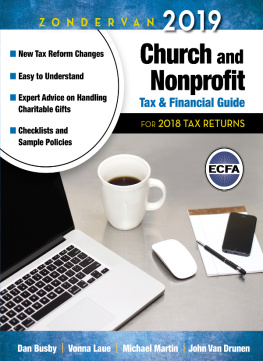
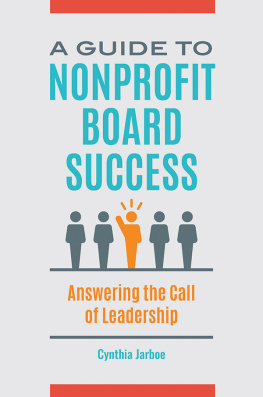

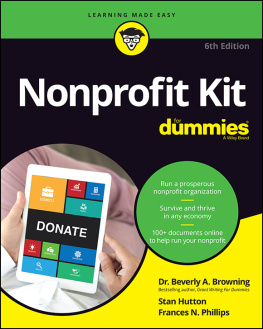
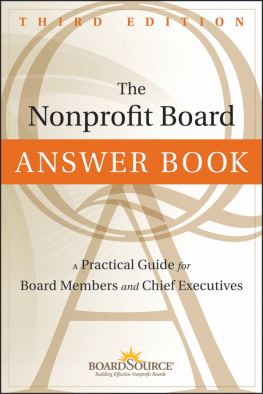
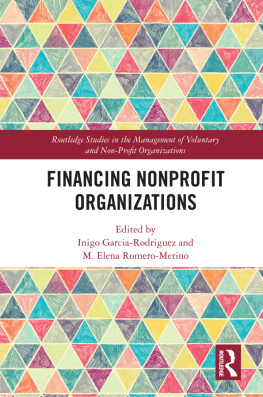
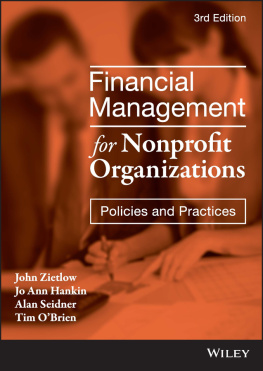

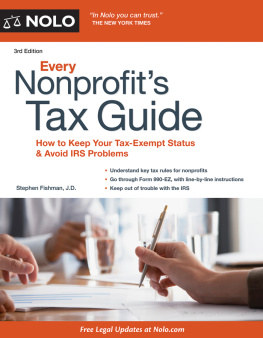

 Conflict of interest policy ()
Conflict of interest policy ()